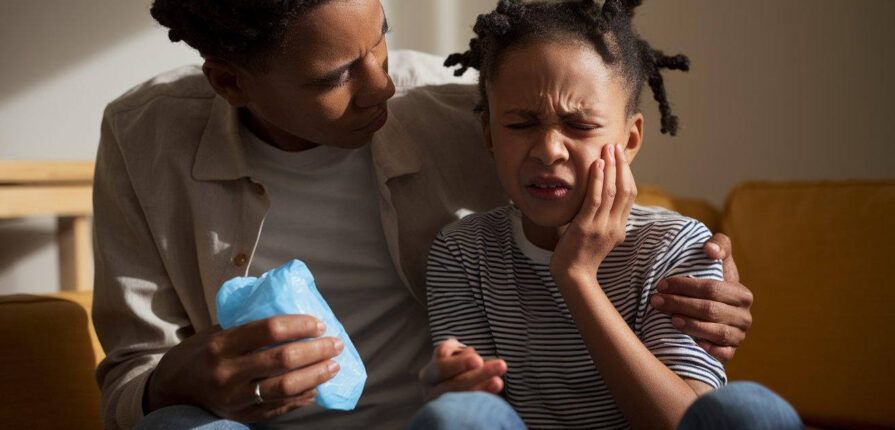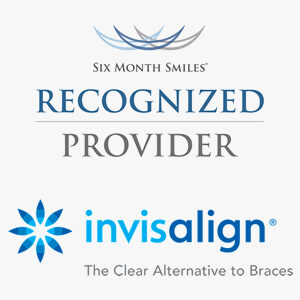When a dental emergency strikes, the last thing you want to feel is unprepared. Whether it’s a sudden toothache, a knocked-out tooth, a chipped tooth treatment, or even a severe dental injury, knowing how to respond quickly and effectively can mean the difference between saving or losing that precious smile. In this guide, we’ll walk you through the most common dental emergencies, what to do when they happen, and how you can protect your family’s oral health.
Understanding Common Dental Emergencies
Dental emergencies can happen at any time, to anyone. They often occur at the most inconvenient moments, causing pain, discomfort, and stress. The key to handling them effectively is understanding the different types of emergencies and knowing the immediate steps to take. Let’s look at some of the most common dental emergencies and how you should handle each one:
1. Toothache
A toothache can range from mild discomfort to severe pain, and it’s often a sign of an underlying issue like tooth decay or an infection. The first step is to rinse your mouth with warm water to clean the area. Floss around the tooth to remove any food particles that might be causing irritation. Avoid placing aspirin or any painkiller directly on the gums as this can cause damage to the tissue.

What to do:
- Rinse your mouth with warm salt water.
- Use dental floss to remove trapped debris.
- Apply a cold compress to the outside of your cheek if there’s swelling.
- Contact your dentist as soon as possible for an evaluation.
2. Chipped or Broken Tooth
Chipping or breaking a tooth can be a painful experience and may cause sharp edges that can cut your mouth or tongue. If you chip or break a tooth, rinse your mouth with warm water and save any pieces of the tooth you can find. If there is bleeding, apply a piece of gauze to the area until it stops.
What to do:
- Rinse your mouth with warm water.
- Apply a piece of gauze to the area if there’s bleeding.
- Use a cold compress to reduce swelling.
- Save any broken pieces of the tooth and bring them to your dentist.
3. Knocked-Out Tooth
A knocked-out tooth is one of the most serious dental emergencies, and time is of the essence in this situation. If you act quickly, there’s a good chance your dentist can reinsert the tooth and save your smile. The tooth should be handled by the crown (the part you see in the mouth), not by the root.
What to do:
- Retrieve the tooth by the crown and rinse it gently with water if it’s dirty.
- Do not scrub the tooth or remove any tissue fragments.
- If possible, try to place the tooth back in its socket without forcing it.
- If you can’t reinsert the tooth, store it in a container of milk or a tooth-preservation product.
- See your dentist immediately, as reimplantation is more successful if done within an hour.
4. Lost Filling or Crown
If a filling or crown falls out, it’s important to see your dentist as soon as possible to prevent further damage to the tooth. While waiting for your appointment, you can use over-the-counter dental cement or even sugarless gum to temporarily seal the area.
What to do:
- Keep the crown if you have it and rinse it with water.
- Apply dental cement or toothpaste to temporarily seal the area.
- Avoid chewing on that side of your mouth.
- Schedule an appointment with your dentist as soon as possible.
5. Dental Abscess
A dental abscess is a severe infection at the root of a tooth or in the space between the gums and the tooth. This condition is serious and can spread to other parts of the body if not treated promptly. Signs of an abscess include severe tooth pain, swelling, fever, and a bad taste in the mouth.
What to do:
- Rinse your mouth with warm salt water several times a day.
- Take over-the-counter pain relievers to manage discomfort.
- Do not try to burst the abscess.
- Seek emergency dental care immediately.
First Aid Tips for Dental Emergencies
Knowing basic first aid can help reduce pain, prevent further damage, and potentially save a tooth. Here are some quick tips to keep in mind:
- Stay Calm: Panicking won’t help the situation, so try to remain as calm as possible.
- Control Bleeding: Apply gentle pressure with a clean cloth or gauze to control any bleeding.
- Cold Compress: Use a cold compress on the outside of the affected area to reduce swelling and numb the pain.
- Pain Relief: Use over-the-counter pain medication like ibuprofen for relief, but avoid aspirin, as it can increase bleeding.
- Visit the Dentist: Always contact your dentist as soon as possible, even if the pain seems to subside.
Prevention Tips to Avoid Dental Emergencies
While not all dental emergencies can be avoided, taking preventive measures can reduce the risk of accidents and tooth damage. Here are some tips to keep your family’s smiles safe:
- Regular Dental Check-ups: Regular visits to the dentist help catch problems early before they become emergencies.
- Mouthguards: If you or your children play contact sports, always wear a mouthguard to protect teeth from injury.
- Avoid Hard Foods: Stay away from chewing ice, popcorn kernels, hard candy, or anything else that can crack or chip your teeth.
- No Teeth as Tools: Avoid using your teeth to open packages or bottles. This habit can lead to chipped or broken teeth.
Why Immediate Care is Crucial
Ignoring a dental emergency can lead to more serious complications down the road, including infections, permanent damage to teeth, and even broader health issues. Quick action can help prevent more invasive treatments and expensive procedures in the future. For instance, a knocked-out tooth has the best chance of being saved if it’s treated within 30 minutes to an hour. Likewise, an abscessed tooth can lead to severe infection if left untreated.
Dental Care Tips for Children in Emergencies
Children are especially prone to dental injuries, whether from sports, accidents, or just being kids. Teaching them proper dental hygiene and safety habits can go a long way in preventing emergencies. Make sure they wear mouthguards during sports and learn to avoid chewing on pencils, ice, or other hard objects.
Dental emergencies are never convenient, but knowing what to do when they occur, including seeking urgent dental care for families, can help you handle the situation with confidence. From a painful toothache to a knocked-out tooth, every moment counts. Staying calm and taking the right steps could save your family’s smiles and spare them from future complications.
Don’t wait for a dental emergency to catch you off guard. Keep your dentist’s contact information handy, and schedule regular check-ups to keep your family’s smiles safe and healthy. Your quick actions today, including knowing where to find emergency dental care for families, could make all the difference in preserving those smiles tomorrow.


